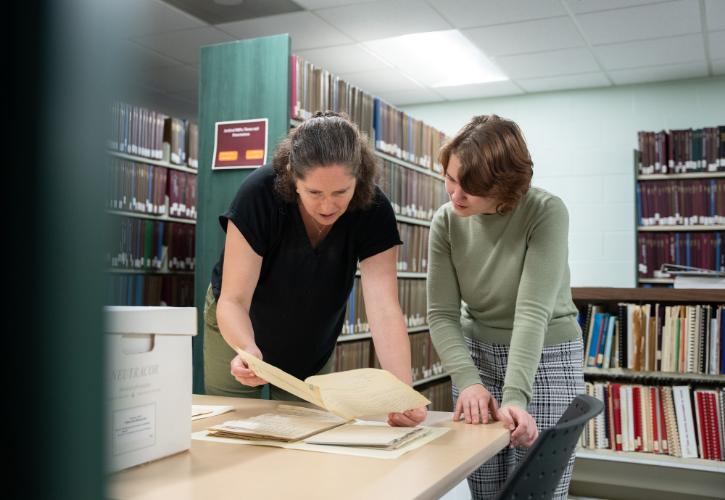Public Humanities and Heritage Program

The interdisciplinary Public Humanities and Heritage program at Saint Mary's University gives students a foundational understanding of theory and practice in the core areas of public humanities (archaeology, archive and museum studies, public history, tourism, digital humanities and collections management). Students gain valuable critical thinking, research and writing skills, and historical and cultural literacy alongside hands-on, practical work experience in field placements.
The program includes a wide variety of courses, drawn from a range of disciplines in the Faculty of Arts. It prioritizes experiential learning, including placements in museums, archives and heritage sites. Students may choose to major in Public Humanities and Heritage or add it as a second major.
Sample Courses Offered
- Introduction to Public Humanities and Heritage: You will be introduced to the key areas of public humanities (archive and museum studies, public history and interpretation, tourism, digital humanities, and collections management).
- A History of Women Artists: Explore the history of women in the arts over the past 500 years, from influential figures like Fontana, Gentileschi, Ruysch, or Bonheur. Inspired by the 1971 question, "Why have there been no great women artists?", students examine how academies of art, galleries, and historians came to ignore or erase their contributions. With a focus on Europe, the course extends to women’s creative works around the globe and may include field trips to galleries and museums.
- Mi'kmaq Storytelling and Literature: You will be introduced to Mi’kmaq literature and oral storytelling tradition in order to examine how Mi’kmaq people and culture have endured, adapted and flourished. As the original inhabitants of the lands now known as Canada’s Maritime provinces, the Mi’kmaq peoples are the holders of a wealth of Indigenous knowledge. These stories, both oral and written, give evidence to the deep connections the Mi’kmaq have with this coastal land base, and exhibit their intimate knowledge of all creatures native to the area.
- Public Humanities and Heritage Field Placement: Earn course credit for completing a placement in the cultural sector. In this placement, students will complete a major project for their host organization. Placements and projects vary year to year. Learn more about Field Placements.
Find the detailed list of IPHH Current Courses 2025-2026
. The list includes required courses, experiential learning courses, de-marginalization courses, language and culture courses, and courses in four possible theme areas: Spatial, Institutional, Representational, and Material.
It is recommended that students meet with the IPHH Program Coordinator once per semester, and an advising "checkpoint" meeting is required once per year. Students' IPHH program of study must be approved by the IPHH program coordinator at the annual "checkpoint" meeting.